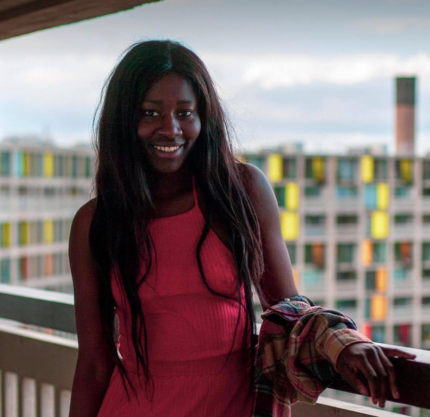Much of the focus of university decision makers over the past year has been on safety.
The creation of “Covid-secure” environments dominated discussion last year as courses pivoted online. But the issues of sexual harassment and assault haven’t gone away, and also pivoted partly online.
To help tackle those issues, Reclaim the Campus is a student and survivor led campaign group that was established in early 2020 whose aim is to change the way sexual misconduct is prevented and handled on campus.
The initial concept first came about when I was offered campaign training by my students’ union at the end of 2019. At the time I was also trying to get my university to take seriously a complaint of racism which I believed constituted student misconduct. This experience mirrored another for me that had taken place at my previous university where I had attempted to make a complaint regarding a sexual assault.
Although at two different institutions, these incidents were similar insofar as they left me feeling let down throughout the process of seeking support and a fair outcome. But observations and frustrations around my case, as well as those of my peers, inspired me to make a plan for a campaign on this issue.
Things were difficult when the pandemic started, but we eventually launched in the summer of 2020 when I connected with other founding members such as Josie, who joined after seeing my advertisement online through a friend. Like me, she had been witness to the normalisation of rape culture on campus and questioned why it persisted. This gave us an urgency to find something we could do to make our impact on changing the culture for future and current students who live the same reality we did.
A move online
By this point the pandemic and lockdowns meant that the issues the campaign was concerned with were far from the forefront of everyone’s minds. But just as other issues of sexual violence were not suspended with the pandemic, neither were the ones of university sexual harassment and assaults – and a Freedom of Information request filed during the campaign research phase found that reported occurrences of sexual misconduct at Nky’s institution did not reduce, despite increases in social distancing measures which limited social interaction.
The realisation that despite social distancing, sexual assault was still taking place stood out to us in highlighting the salience of the work we were trying to undertake. Alongside those included in the Revolt Report, and awareness from our personal networks at our respective universities, it was clear the issues we were attempting to address were UK wide.
In recent months notable campaigns such as Everyone’s Invited have further highlighted that this issue is almost a pandemic in itself – existing alongside the Covid-19 one. Members of the group have various motivations for getting involved including their own experiences or close proximity to some notorious ones, all which gave insight into ways in which policy appeared to fall short or meet the needs of student-survivors. With this shared understanding and the belief that our exposure to the incumbent cultural landscape of higher education providers as well as our interest to scrutinise policies, we started carrying out research that eventually was summarised in a report that we published earlier this month.
Our campaign has been planned and executed completely virtually – split into three main focus areas – accountability, transparency and awareness. These aims are all incorporated into the report and prompted many of our research questions. With our research we analysed 41 universities in total, many of which were our own, to understand what we had observed first-hand or in the news and contrast it to what universities had explicitly stated in their own policies as well as comparison of what was available and possible elsewhere. Our analysis also placed emphasis on things such as intersectionality as well as effective enforcement of policies.
Is there even a specific policy?
It became clear early on in the process of reading sexual misconduct policies that one of the key takeaways was that many of the universities didn’t actually have a specific policy on sexual misconduct. Many mentioned it under different categories of their policy, but as students, or potential victims, looking for this information, it may be difficult to find. We also didn’t feel this aligned with the scale of the issue.
Looking at the policies themselves, we also found that many weren’t clear when it came to the procedures for reporting incidents, or the support victims would receive and sanctions that perpetrators would receive. Better clarity and specificity to address the severity of the issue and provide proficient support therefore seem necessary.
The purpose of our report is not to “expose” any university for non-proficient sexual misconduct policy. Rather, as already stated, our motivation in writing the report is to provide universities with a perspective on these policies with in depth insight to the issues they concern.
A student perspective
Although we do not have the benefit of industry professionals, and professional consultants or researchers, we do have a unique position as students and recent graduates to help universities understand a student perspective and therefore build policies that will really be effective for students. We also wanted to promote and encourage the need to centre survivors and students in the development of these policies.
The purpose of university’s sexual misconduct policy should be, above all else, to cater to the views, needs, protection and support of students and survivors. Writing from a student perspective then, we wanted to demonstrate through this report that it is something which is possible and should become the standard. As those who are meant to be beneficiaries of such policies we can encourage them to take into consideration things such as the gap between what is considered a successful outcome to an institution compared to a survivor.
We hope that the consideration of the recommendations made by universities, opens up opportunities for further conversation between policy-makers and those impacted by those policies.
Widening the scope
Now that we’ve published the report there is a range of things we want to do, as we state that our campaign is concerned with higher education, we are conducting further research into issues that pertain to colleges and non-university further education providers.
Additionally, as the summer semester has come to end for the majority of students, we are preparing resources on consent and support available that we plan to make available for students who are to start in the 2021/22 academic year.
As ever we are also open to collaborations, from other groups, campaigners and university staff and students and we can be contacted through our website, or any social media platform.
Most importantly, we want to send a clear message both to SUs and to universities that involving survivors is crucial to getting both policies and their execution right. Those that have been through it have good advice on how sexual misconduct can be prevented and allegations of it processed in a way that gives survivors more confidence and control.
In June 2021 we finished our report where we examined university policies of 40 institutions – many of which were our own. At the end of June we launched and published this report. It can be accessed and discussed by emailing us.



















